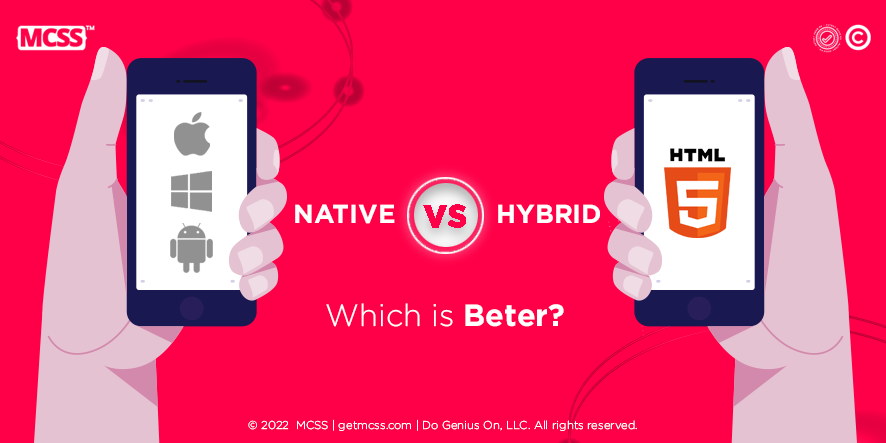It's not an easy task to make a decision whether developing a native mobile app or a hybrid mobile app because of the challenges, performance, and cost involved in each technology. We decided to write an article touching on the pros and cons each technology has to help you make the best decision for what you are trying to accomplish.
As it might seem a priori, and before choosing one or another option, many variables or circumstances must be analyzed, such as the target audience of the app, the core of your business, the user experience, and the functions that you want to cover with the mobile application among other features.
In this article, we are going to see the main differences that exist between carrying out development of a native or hybrid app and we will analyze in broad strokes when it makes more sense to invest in one or another type of application from the business point of view.
Hybrid applications vs native applications
Native applications are those that are specifically developed for each operating system, for example:
- Java o Kotlin to create applications for Android devices.
- Objective-C o Swift to create apps for iOS or Mac OS devices.
- C# o .Net for Windows.
Hybrid applications are those in which a combination of aspects of native applications is used in conjunction with web technology languages such as HTML, JavaScript, and CSS, which allows them to be adapted to any operating system.
They are essentially web pages embedded in a mobile application through a WebView. Among some of the JavaScript frameworks to be able to develop hybrid apps are:
- Ionic: It is free and open-source, for the management and creation of hybrid applications based on HTML5, CSS, and JS. It is built with Sass and optimized with Angular JS.
- Onsen UI: It is an "open-source framework" that allows developers to adjust and install applications with elements that seem native. It's easy to use, you can work with or without 'Angular JS'.
- React Native: React Native lets you build applications via declarative UI paradigme and JavaScript, resulting in a product with a closer experience to a fully native application.
The advantages and disadvantages of native applications
- Advantages: The app has access to all the APIs that the OS makes available to it, offers a much better user experience because it works on the device's OS, is more reliable and the performance is at its peak.
- Disadvantages: The development process can be higher because an application must be developed for each operating system. It is necessary to learn the different programming languages for each operating system. The same code cannot be reused.
But don't worry, the disadvantages mentioned above when building a native mobile application are reduced thanks to MCSS (Mobile Cascading Style Sheets), which allows you to create complex designs that run on both IOS and Android simultaneously.
The advantages and disadvantages of hybrid applications
- Advantages:
- Development time is shorter since you don't have to create an application for each operating system.
- You don't need to know different native programming languages for each platform to create them.
- Disadvantages:
- Depending on how complex the hybrid application is, its performance can be poor.
- Hybrid apps do not have access to all APIs and device resources.
- The performance is below that of a native application because each page must be rendered from the server.
- User experience is limited.
- Creating complex graphics can be challenging.
- Constant updates needs to be performed to keep up with OS updates from the device manufacturers.
- Hybrid technology is hard to maintain and keep up with constant advancements and new features from device manufacturers.
When does it make sense to use hybrid apps?
The hybrid approach makes sense when, for example, if you only have a very short time to develop a new app and your goal is to test the limits of your app in the market, then hybrid is definitely the best option. Let's not forget that you can switch to native after initial testing and save more money, time, and effort for the future. However, as mentioned above, thanks to MCSS it is now possible to reduce development time and cost in native mobile applications.
If you want to learn more about the pros and cons of hybrid and native applications, you can read this other article: https://www.getmcss.com/press/the-pros-and-cons-of-native-vs-hybrid-mobile-app-development

